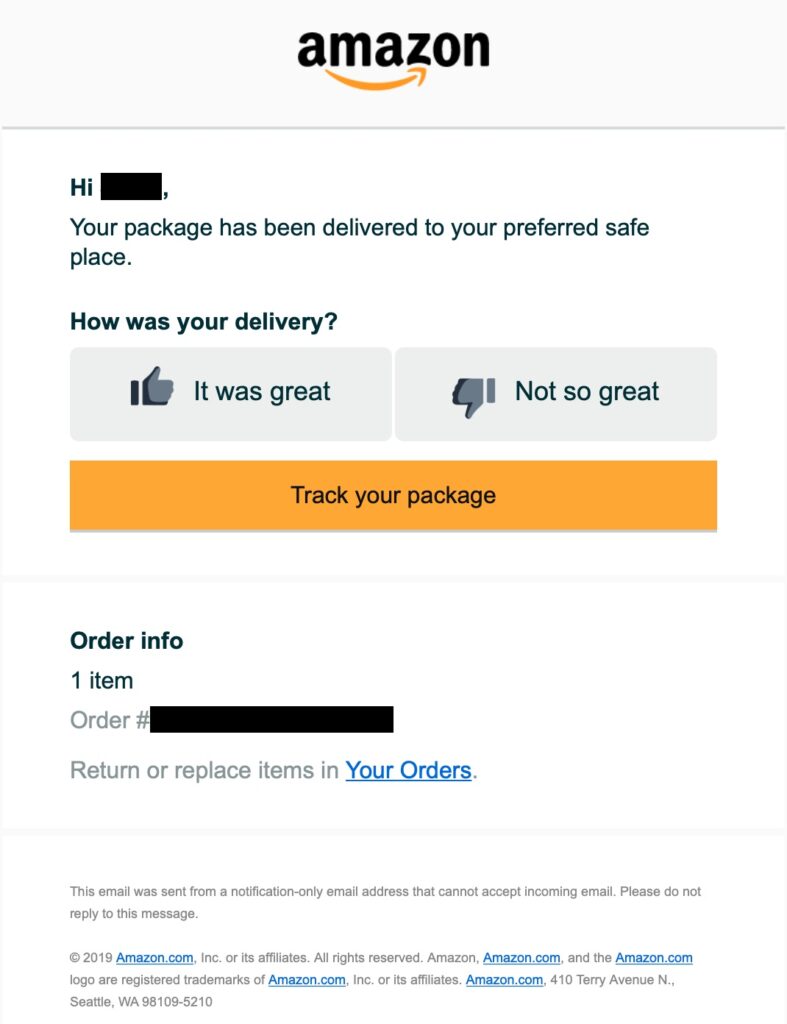Sep
28

With National Cyber Security Month upon us in three days, now seems like a good time to revisit the topic of cyber fraud. But rather than focus on the technically proficient cyber-criminal, today I shall focus on people who unwittingly obtain undeserved credits and refunds, aka friendly fraud.
Friendly fraud
Memory, or, rather, the lack of it, is a frequent author of friendly fraud. Most of us have had the experience of reviewing a statement and wondering, “Who the devil is Monoflarb Enterprises LLC and what the devil could I possibly have purchased there for $24?” Then a bit of googling quickly reveals that Monoflarb operates a store you know by another name, where you indeed remember spending $24. But people who aren’t as adept or diligent when it comes to googling may default to contesting what is in fact a legitimate charge.
Friendly fraud also comes in the form of simply forgetting having received an item. Or in the form of an authorized party—a relative, for instance—who makes a legitimate purchase and takes delivery, all unbeknownst to the account holder, who may truthfully claim, “I never shop there.”
While an individual friendly fraudster may not be able to inflict much harm upon a financial institution or merchant, individual cases have a habit of adding up. PYMNTS.com points out that the current pandemic has produced a surge in orders to restaurants offering delivery services and, with it, an increase in friendly fraud …
… especially since many mobile apps come equipped with features or tools that only make it easier for friendly fraudsters to request illegitimate chargebacks or make other false claims. This type of fraud can be equally as costly for QSRs [Quick Service Restaurants] to manage as malicious cybercriminals make it imperative for these entities to keep their mobile platforms secure against such unnecessary chargebacks.
Moreover:
One 2018 report stated that approximately one out of every 100 consumer transactions are targets of this type of fraud … This may seem like a small segment, but it can really push up costs for restaurants, especially for smaller businesses.
The cost
Generous policies allowing customers the benefit of the doubt can make for good customer relations, but they can come with a high price tag. Another PYMNTS.com article states:
A recent study examining the past three years found that online retailers experienced wrongful chargebacks 50 percent more often than they did chargebacks that were in response to criminal activity. This is a costly problem for merchants that often struggle to furnish the evidence needed to successfully dispute the claims and for FIs that must spend time and money investigating charges that never should have been placed.
Chargeback solutions marketer Chargebacks911 concedes the difficulty in pinning down a reliable number. “Issuing banks and card networks,” their website states, “refuse to publish essential data or specific numbers on chargebacks in areas such as dispute win rates.” Besides,
Even if those entities would be willing to share information, they typically don’t keep the kind of comprehensive records needed for a “big picture” view. Similarly, merchants hesitate to release any information regarding chargebacks, fearing the association could harm their reputation.
Notwithstanding, the company estimates that “86% of all chargebacks are probably cases of friendly fraud,” and that “roughly 40% of consumers who commit friendly fraud will do it again within 60 days.”
Pragmatic solutions
It goes without saying that AIs are getting better at detecting and preventing many varieties of fraud, friendly fraud included. But surprisingly obvious, even banal methods within easy reach can produce favorable results.

You may have noticed, for instance, that Amazon, Grubhub, and other delivery drivers have taken to texting or emailing delivery notices, increasingly attaching photos of the delivered product contentedly waiting at the customer’s door. That’s an eminently pragmatic solution. Besides confirming delivery, the practice gives an immediate heads-up to clients in the event they genuinely did not place an order.
Another banal solution is to make sure that no customer ever has to google Monoflarb Enterprises LLC in the first place. Merchants need only do a better job of making sure they are identifiable on statements.
Here’s an obvious one: Given the increasing prevalence of smartphones, tablets, wearables, and computers that use biometrics, it only makes sense for payment apps to avail themselves of them. Of course, for big-ticket items, obtaining a signature at delivery is all but a sure-fire means of eliminating friendly fraud.
Not to be underestimated is the power of good, old-fashioned customer service. Chargebacks911 observes, “If customers trust the merchandise, comprehend all delivery and return policies, and are confident the merchant will help resolve any problems, they’re less likely to seek a friendly fraud chargeback.”
Some of the above may seem so obvious as to elicit a “duh” here or there. But one person’s “duh” is often another person’s “aha!”